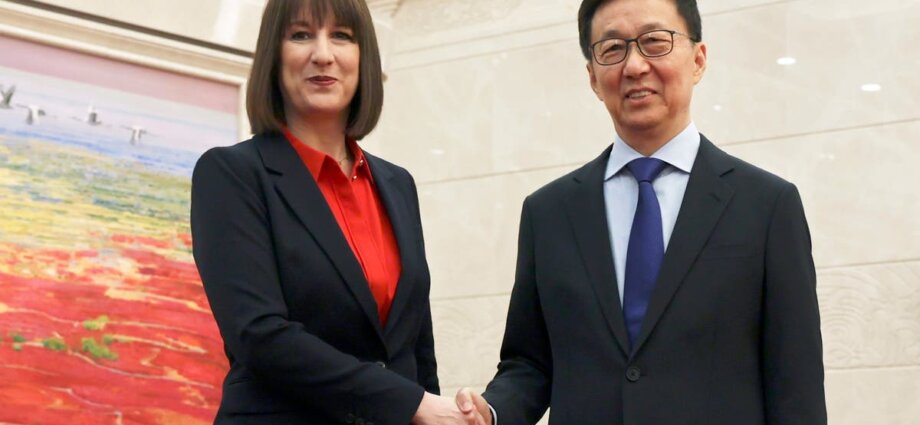Rachel Reeves has been warned that she and the Labour government have abandoned their principles by launching ‘operation kowtow’ with China in a desperate move to save the UK economy.
The chancellor on Saturday doubled down on defending her controversial trip to China as concerns grow that she will return to a full blown economic crisis next week.
But she was blasted by former Tory leader Sir Iain Duncan Smith, who has been sanctioned by the Chinese Communist Party (CCP), and the last British governor of Hong Kong Lord Patten.
Speaking exclusively to The Independent, Sir Iain said: “This is a return to operation kowtow it really is quite awful and dreadful. Just as the EU and the USA are cutting their ties with China she is rushing over to prostrate herself before President Xi Jinping in the hope he will rescue her because she has trashed the economy.”
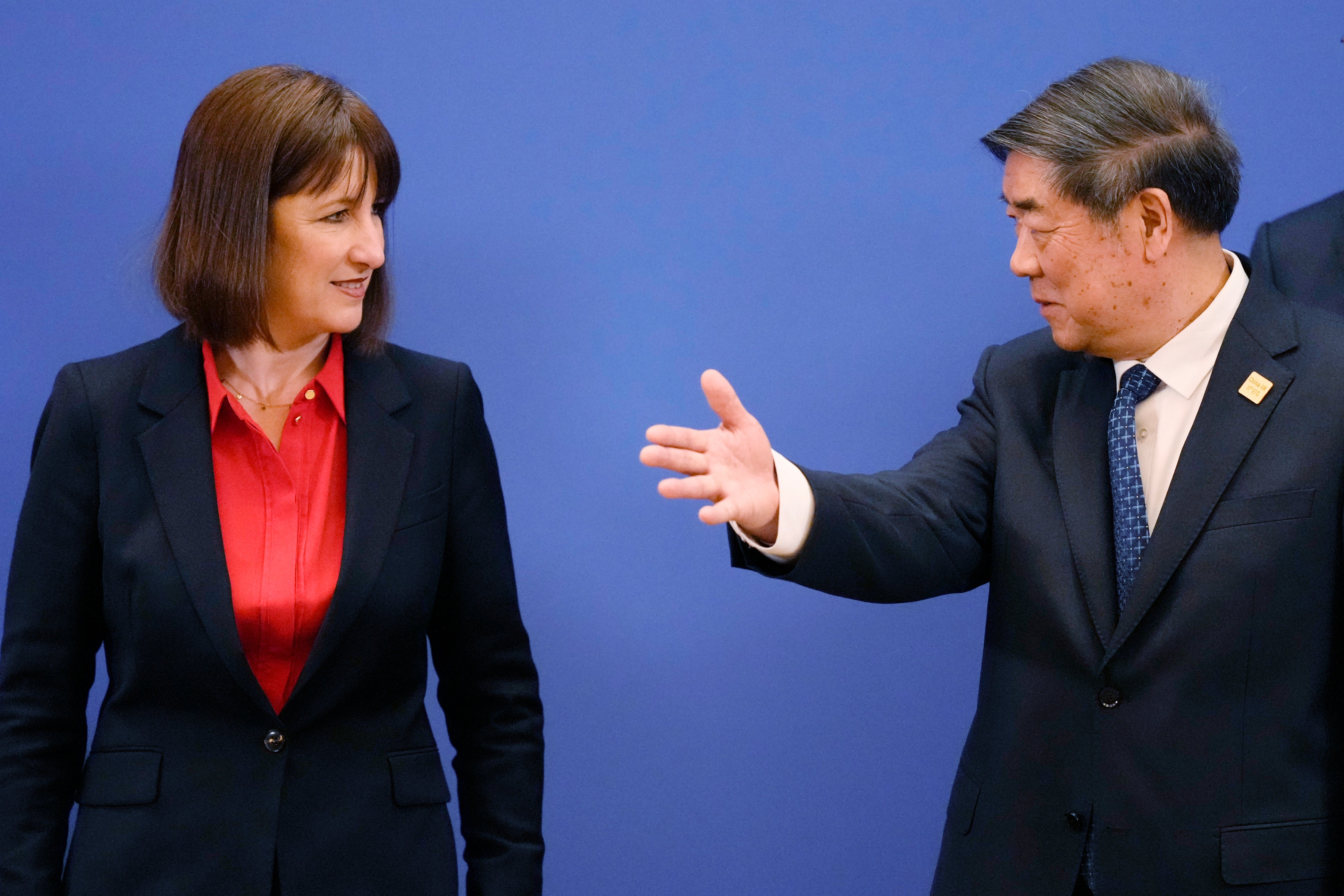
He noted that major US businesses like Apple have moved their factories from China to India and while the USA has sanctioned CCP officials for breaking the deal on Hong Kong, the UK has not sanctioned anybody.
He also noted that energy secretary Ed Miliband’s push to buy solar panels from China is supporting their use of Uyghur salvelabour and concentration camps. The former cabinet minister also noted that when Starmer first spoke to President Xi less than 24 hours later 45 Hong Kong activists were arrested for using their legal right to call for an election.
Sir Iain went on: “This is as bad as dealing with Nazi Germany in the 1930s. You have to wonder what has happened to this great country. What Starmer and Reves are doing is absolutely pathetic.”
Lord Patten, who negotiated the Hong Kong deal with China accused Labour os “abandoning its principles” on Sky News.
He described Ms Reeves’ approach as “delusional” and said that her attempts to raise human rights concerns were “by the way” and “not serious”.
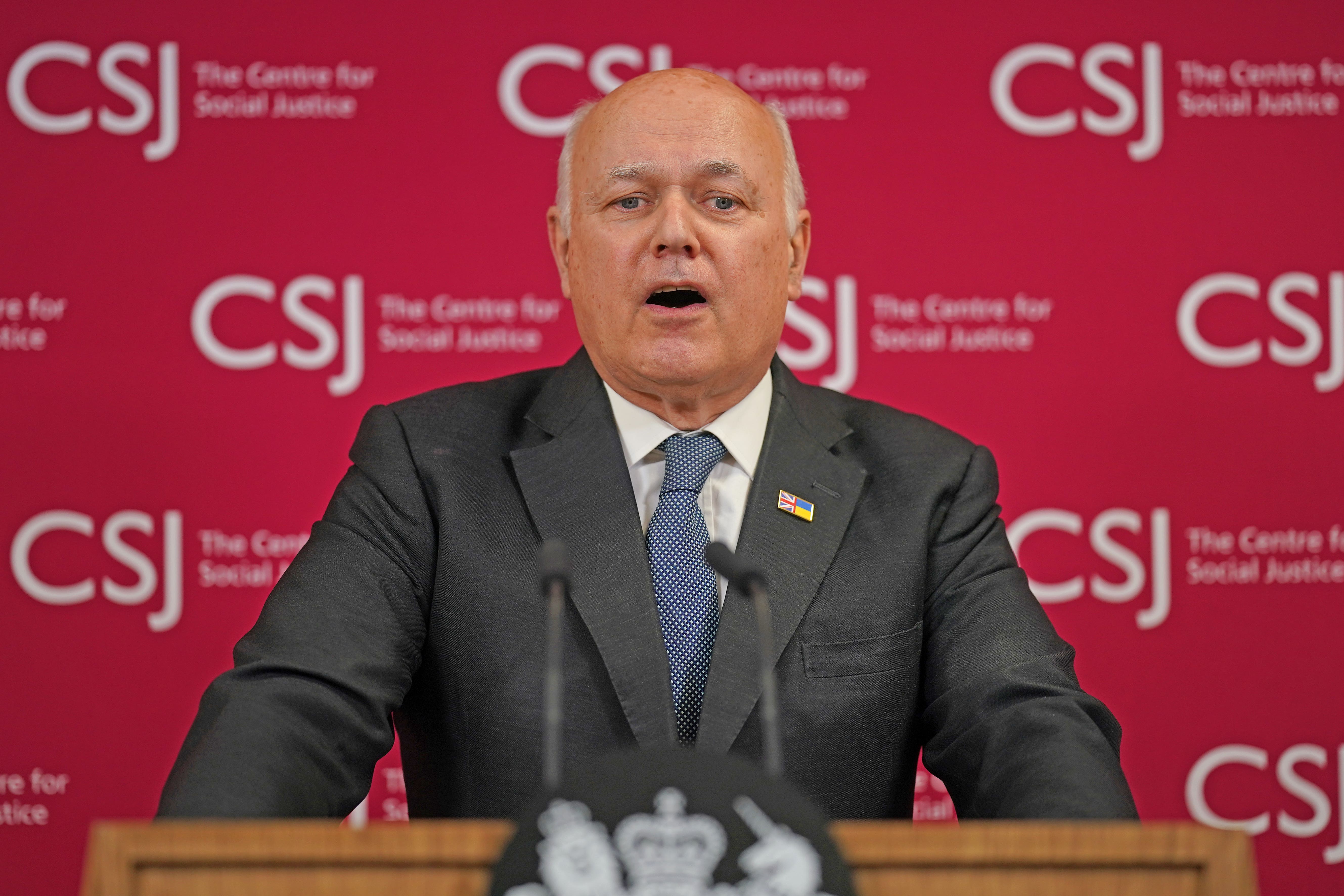
He pointed out that the UK has not even managed to get consular access to Hong Kong political prisoner and British citizen Jimmy Lai while others are being denied access to the Chinese pension scheme.
Lord Patten said the situation should bee seen as “intolerable”.
He said: “There’s a terrible sense in which delusion creeps into every aspect and the sooner, the better that we actually behave towards China, with the same balance, and reason, and evidence-based policies as we try to apply to other countries.”
Meanwhile, with the UK economy reeling from turbulance on the markets, briefings have suggested that the chancellor is planning on slashing billions off disability benefits and postponing increasing defence spending to 2.5per cent of GDP until the 2030s in a bid to stay within her own borrowing limits.
Turmoil in the gilt markets has overshadowed Ms Reeves’s trip to Beijing, with the Conservatives accusing the chancellor of having “fled to China” rather than explain how she will fix the economy.
The trip is part of Labour’s push for greater engagement with Beijing, after a freezing of relations under previous Conservative prime ministers.
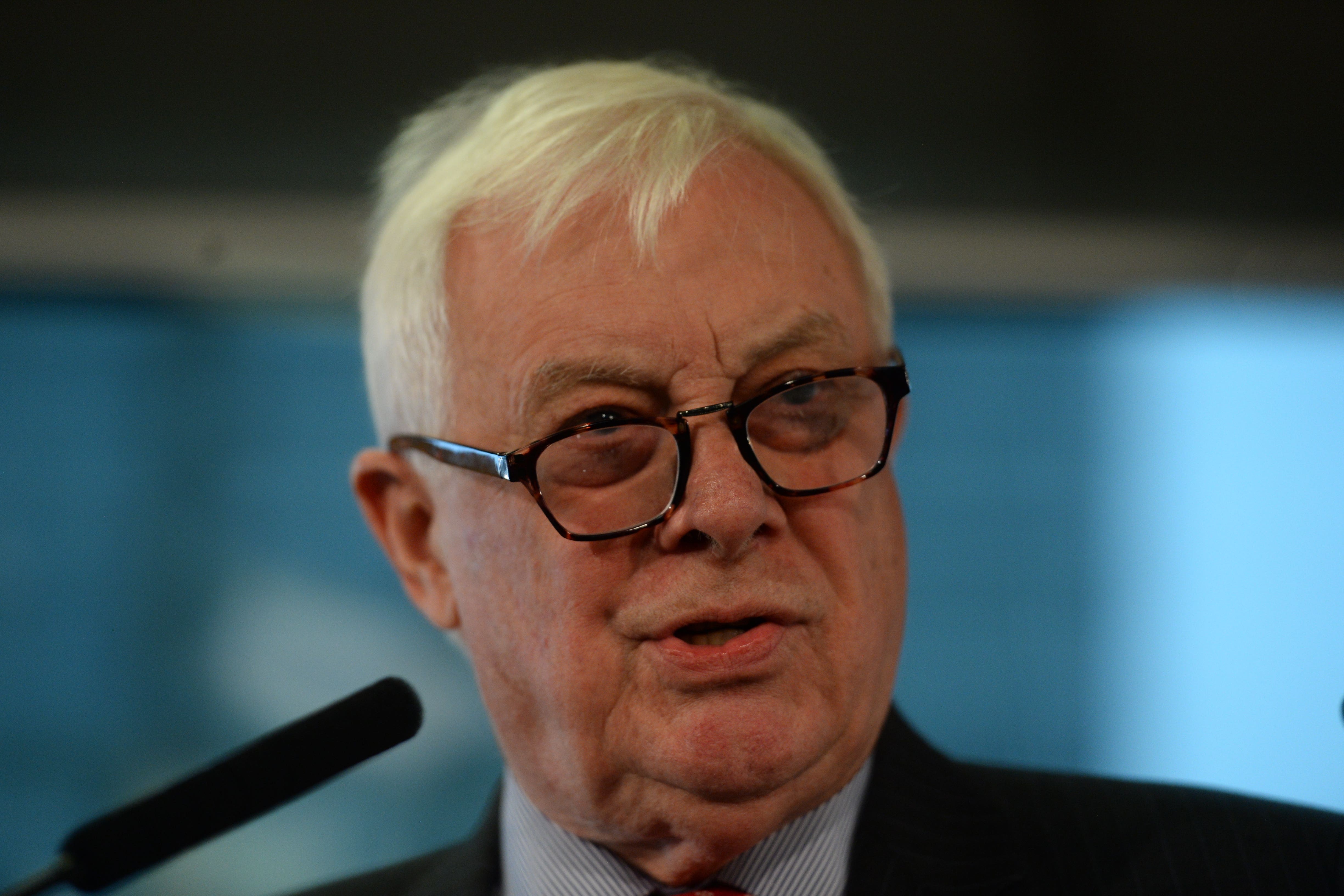
But it also comes amid spculation that Ms Reeves is going to be forced to break her “golden rule”on borrowing limits and a report revealed by The Independent showing that a new inflation cost of living crisis could be around the corner with the price of imports on food and electrical items among other staples set to rise by up to 20 per cent.
The value of the pound also slid last week as investors held their breath on the state of the UK economy.
But defending her trip, Ms Reeves described it as a “significant milestone” in Britain’s relationship with China as she met vice-premier He Lifeng.
Speaking at the opening of the 11th UK-China Economic and Financial Dialogue, she said: “Today marks a significant milestone in the UK-China relationship, with the first economic and financial dialogue between our countries for nearly six years.
“It is a signal of this new UK Government’s commitment to fostering a stable, long-term partnership and of the importance that I place on realising the economic potential of co-operation between the UK and China.”
Noting that the global situation was “more complex and more challenging” than at the last dialogue in 2019, she added: “It is precisely in such times that practical, pragmatic co-operation between the world’s major economies is most needed.”
Significantly though Ms Reeves has been accompanied by Bank of England governor Andrew Bailey and Financial Conduct Authority chief executive Nikhil Rathi. It has been pointed out that China has bought up significant amounts of UK national debt which gives it leverage and makes it an important partner in potentially tackling a financial crisis.
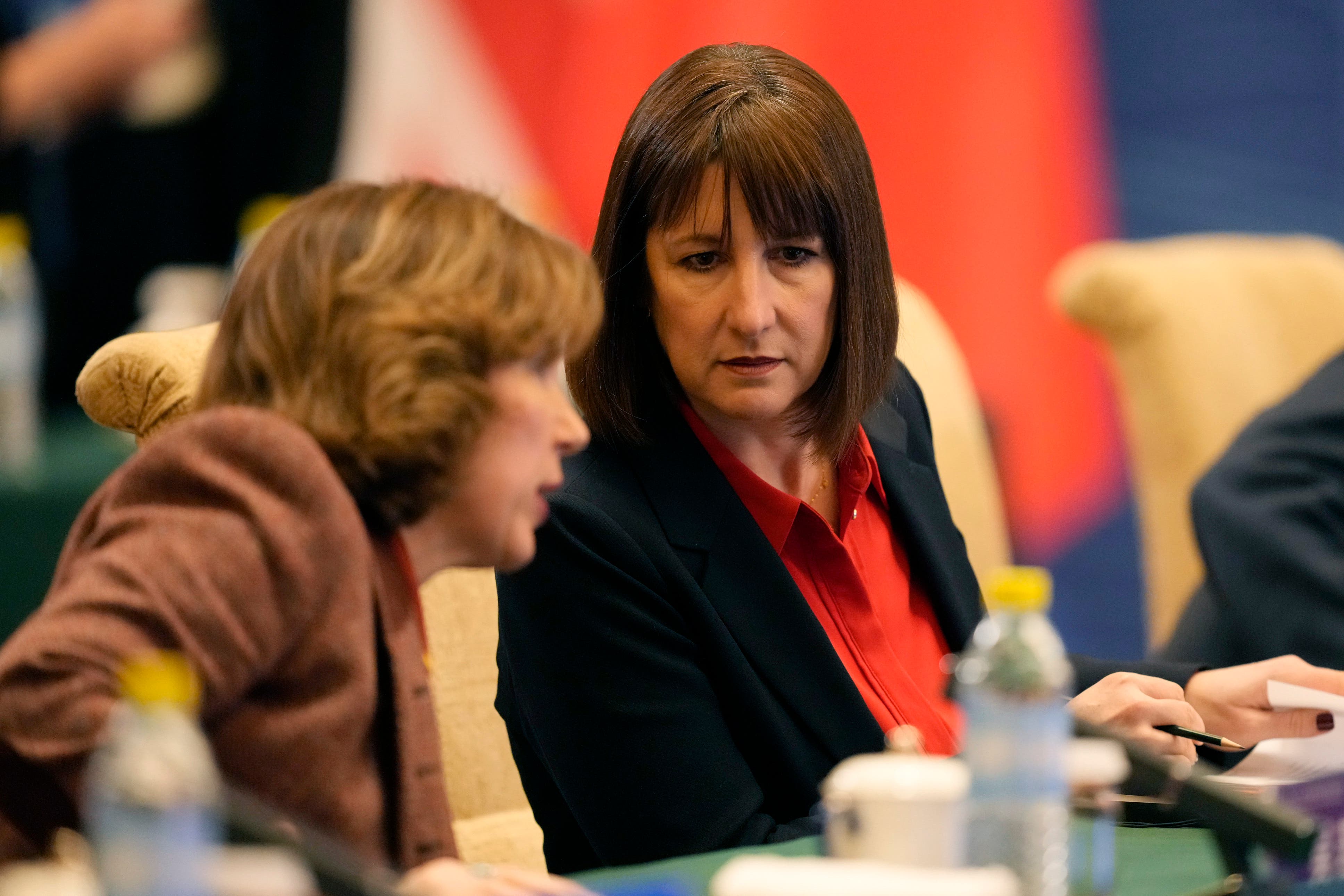
In her speech the chancellor called for more trade and investment between the two countries against a “more complex and more challenging” geopolitical background.
She said: “We must seize this opportunity to set a course for a stable and mutually beneficial relationship with one another.”
Later, speaking at a meeting with Chinese vice-premier He Lifeng, she said: “I believe that increasing trade and investment with an economically important partner like China is crucial for achieving my number one mission in Government – economic growth.
“Improving market access is essential for enhancing our bilateral trade, reducing barriers to trade and creating a level playing field for businesses will benefit not only our economies but also consumers and citizens in our countries.”
Calling for an increase in investment between the UK and China, she added it was “important to prevent economic links weakening our national security and economic resilience”.
Following the meeting, the Chancellor announced that agreements had been reached worth £600 million to the UK economy over the next five years, while “re-engagement” with China “already sets us on course to deliver up to £1 billion of value for the UK economy”.
This includes agreements on financial services, agri-food and cultural exports, along with other areas.
However, there are serious concerns about the measures Ms Reeves may need to take in the short and medium term to stabilise the economic situation.
The Daily Telegraph reported that billions in benefits for people with disabilities could be slashed in a move which could spark a rebellion among Labour MPs. They are already unhappy about winter fuel payments being withdrawn from 10 million pensioners and a refusal end the two child benefit cap.
The cost of disability benefits is forecast to rise from £22 billion to £35 billion by 2029, a 60 per cent increase which is seen as unsustainable.
And Ms Reeves is understood to have told Treasury officials that “tough” decisions ned to be made to keep the bill down with her vision of Labour being “the party of work”.
Meanwhile, her restraints could put the UK on another collision course with the Trump administration with the push to increase defence spending to 2.5 per cent of GDP shelved until the 2030s. The president-elect has called on Nato allies to increase spending to 5 per cent of GDP but Labour is set to struggle to achieve even half that amount during his term in office.
Paul Johnson, outoging director of the Institute for Fiscal Studies (IFS), warned that in financial terms it would be “staggeringly hard” to achieve the 2.5 per cent target in the next five years.
Mr Johnson also described Ms Reeves breaking her borrowing limits as “pretty scary for the markets” which were already “concerned about the UK position”.
Opposition parties warned that Ms Reeves has got her priorities wrong.
Shadow chancellor, Mel Stride said: “Rachel Reeves has got her priorities badly wrong.
“Whilst she’s absented herself on the far side of the world her economic decisions here are pivoting us back towards the 1970s, with borrowing costs soaring, stagnant inflation and growth crumbling.
“The chancellor’s place should be fixing this mess of her own making. She should get on a jet and come straight back to the UK.”
Liberal Democrat Treasury spokesperson Daisy Cooper MP said: “The chancellor must come back now to urgently address the ongoing crisis in the markets and announce a serious plan for growth.
“She should reverse the misguided and self-defeating jobs tax, scrap the broken business rates system and start rebuilding our trade relationship with Europe, to fix our economy after years of Conservative economic vandalism.”











